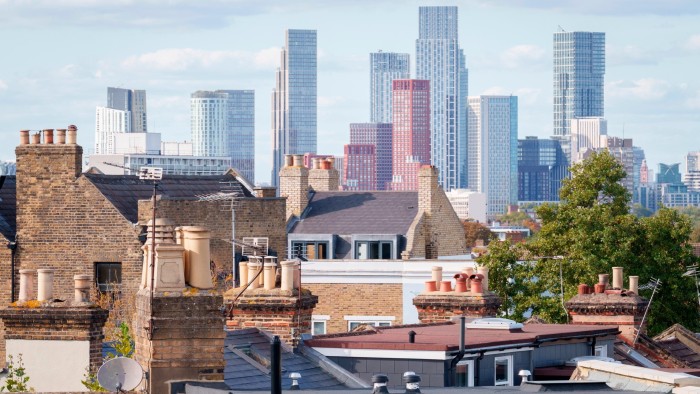Stay informed with free updates
Simply sign up to the UK tax myFT Digest — delivered directly to your inbox.
A majority of the British public supports reforming council tax, a poll has shown, as chancellor Rachel Reeves considers changes to property taxation at the November Budget.
A survey of 2,000 people by YouGov this month found that 56 per cent of respondents were in favour of reforming the tax to make it directly proportionate to the value of a home. The current council tax system is based on the value band a property falls into, which is derived from valuations that have not been updated since 1991.
YouGov’s poll asked members of the public for their views on 12 tax proposals including council tax reform. It was partly inspired by an article in FT Money published last month, headlined “How to tax the British people (if you could start from scratch)”.
Council tax is imposed by local government on residential properties, depending on the band into which the property falls — from band A for the lowest value properties to band H at the top of the market. The price ranges for each band are set nationally, but the tax rates themselves are determined by councils. Crucially, properties do not change band when their value moves.
As a backbench MP in 2018, Reeves wrote in a pamphlet that “council tax, based on 1991 valuations, is at the very least long overdue a re-evaluation and revision of existing bands”. She added: “We should also consider the case for its overhaul and replacement with a property tax, levied on property owners. It would be more equitable and it would place the burden on landlords and not tenants.”
The poll found that the three tax reforms that were most popular with the public were taxes aimed at the wealthy and those with valuable assets.
YouGov found most support for the introduction of a wealth tax of 1 per cent on assets above £10mn and 2 per cent on assets above £1bn, a policy advocated by the Green Party. This was supported by 75 per cent of Britons, the poll found — with 12 per cent opposing it.
Reeves has ruled out a net wealth tax in the UK, though she has said that taxing those with “the broadest shoulders” will be “part of the story” at the Budget on November 26.
The second most popular tax reform the poll found was a “mansion tax” on homes worth more than £2mn, which gained the support of 69 per cent of the public, with 20 per cent opposing it.
The third most popular tax reform was an “exit tax” for rich people moving out of the UK. This would entail requiring emigrants to pay tax on all unrealised capital gains.

Labour’s manifesto promised not to raise the three main taxes on “working people”: income tax, national insurance and VAT. YouGov’s poll suggested that if the government were to break this promise it would not go down well with the public.
The survey found only 14 per cent of Britons would support an increase in VAT, while 22 per cent apiece backed increases in national insurance or the basic rate of income tax. The public were divided 42-43 per cent on increasing the higher rate of income tax.




